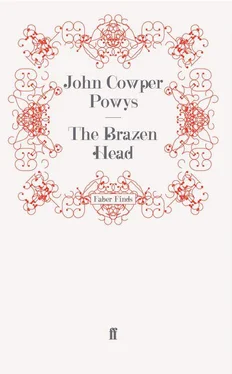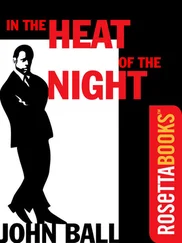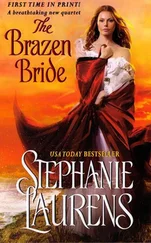It was indeed only natural that our Friar felt “tired” as he had not been out of his prison-chamber for more than a year. But he felt in good spirits and extremely interested in all he saw. So he seated himself on the mossy root of the oldest oak-tree in sight, a tree that might well have been an offshoot of the yet older one on which the bird rested who first brought to Britain the news of the death of Jesus; and from this secure position, as he contemplated the crowd and watched his own creation, the Brazen Head, balanced on the shoulder of Peleg and supported by what Homer would have called the “leukolenian” arm of the stately Ghosta, he allowed his mind to drift in a mood of fascinated wonder over the long eddies and aberrations of mankind’s historic pilgrimage down the ages, pondering upon its pathetic, humorous, and tragical struggles with itself, with Nature, and with the innumerable false prophets and false gods who from the beginning have led us all astray.
But as he rested under that oak, half-awake and half-asleep and unusually happy, he suddenly became aware, by no very unnatural thought-transference, of the laboured approach to his side of none other than Lay-Brother Tuck from the Priory. The most hostile historian could have caught nothing but friendly amusement in the tone wherein this anticipator of all mankind’s wildest inventions replied to this interruption when he heard himself greeted by Brother Tuck.
“Sit down, Brother,” was all the Friar said. “So you’ve come for me, have you? Well, well! We shan’t have any trouble except in our own legs as we go back. O no! I haven’t the faintest intention of leaving my room in the Priory, my ‘Prison’ some call it, but you and I know better! We know how little I regard it as anything like that! What did I become a Friar for? Wasn’t it for a quiet study to work in? You know that , Tuck old friend, as well as I do! Nobody but you, Tuck old rogue — Here! Sit you down here! You must be fairly done in after all that distance! — nobody but you knows what racy stories go round in our rollicking Bumset!
“Yes, and nobody but I know what a patient listener you are, my dear, to my irreverent gossip about the so-called ‘makers of history’, whose crazy ideas I have to describe to the Holy Father to prove I’m not idling away my time.
“Just look at all these people, Tuck! Just look at them! Do you know what got them here? I can’t tell you exactly; but I can tell you this much. It has to do with a discovery in magnetism by this acquaintance of mine — I hesitate to call him a friend, as, to confess the truth, I’m rather scared of him and a bit nervous — I always have been since I first encountered the man somewhere abroad — I don’t think it was in Paris — a bit nervous — you know how cowardly I am, Tuck old friend! — that he might start his magnetic experiments on me!
“But let him go. And by God, he has gone! He’s behind those barred gates now, practising on young Mistress Lilith, who’s just watched her parents murder each other, and seen all their people and all their serfs bolt after a speech by Dod Pole! Yes, that Lilith-girl watched her father and mother fight to the death; and then saw all her people, both bond and free, strip off their clothes and rush away into the woods and marshes!
“Old Dod Pole made one of those orations of his that everyone’s been telling me about. And do you know, Tuck my friend, the old boy struck some note in my midriff that brought back to my mind a scene at Montacute when — but what on earth is that Dominican from Cologne, and a demi-semi bishop he is, too, preaching about now up there? Can you catch what he’s saying?”
It was clear enough that Brother Tuck had caught very distinctly one point anyway in the Dominican’s speech: “Well! I never thought I’d live to hear—” he now cried out.
Roger Bacon turned to him with the most lively interest. “Hear what? For God’s sake, old friend, stop chuckling like an enamoured goblin and tell me what the fellow’s saying! You’ve had lots of foreigners in your kitchen and ought to know their accent by now! My long walk to this confounded place and this wild wind and the whistling of those King’s Men seem to have made me stone deaf.”
Lay-Brother Tuck rose on his toes, for the angel who presided at his birth had decreed that, if he was to be the merriest of the sons of his mother, he must consent to be the shortest. He also seized a branch of the oak above the Friar’s head and hoisted himself up a little, placing a screen of leaves between Roger Bacon and the astonishing spectacle before him.
But the Friar had trained himself too long to accept such crampings of vision to fall into a rage because he now couldn’t see this black-robed figure at the gate of Lost Towers any better than he could hear him.
“He’s got a thing on his head,” announced Brother Tuck, “more like a turban than a mitre.”
“Never mind what he’s got on his head, Tuck. Tell me, for Jesus’s sake, what the fellow’s saying.”
“He’s offering to marry anybody who wants to be married.”
“Nonsense, Tuck! Nonsense! No priest of our time, even if he were Archbishop of Ireland, would stand on a hill before the gates of Hell and offer marriage to the world!”
“But he is, he is! I tell you, Friar, he is! He’s saying that the great evil of our time is that people don’t marry early enough!”
“Not early enough, Tuck! God in Heaven! Haven’t I been trying all my life to stop this curst habit of marrying little girls of twelve to old men of sixty? Not early enough! What will these doctors of theology want to do next? Marry babies to each other? Marry foetuses in separate wombs, on the chance that they turn out of opposite sexes?
“The truth must be that we monks and nuns and friars are finding our celibate life so indescribably tedious that we want to increase the number of these kicking, scratching, biting, beating, strangling couples, in order that we can at least feel thankful we’re free from the claws of a mate! But shall we never see, O my turtle-dove of Tucks, that it’s our mania for marriage itself that’s spoiling our world? Nature can provide us with loyal and faithful mates without our having formally to create such monstrosities of scratching and clawing.”
Friar Roger continued for several minutes this diatribe against marriage; but Lay-Brother Tuck was by this time far too fascinated by what was going on to pay his metaphysical friend any further attention.
Roger Bacon’s own mind, however, was itself soon wandering from the problem of marriage. It was of astrology he was thinking now as he stared heavenward above the left buttock of Brother Tuck and through an impenetrable mass of oak-leaves. Thus it was not the mid-day sunshine beating down on the black robes and elaborate head-dress of the teacher of St. Thomas Aquinas that the inventor of the Brazen Head was now beholding, but the black abysses of the star-sprinkled midnight sky wherein he saw, although many of them would in reality when midnight came have been totally invisible, all the stars that were important as signs of the zodiac.
But something in the whole atmosphere of this particular spot on the earth’s surface at this particular moment soon forced our great scientist’s mind back upon the religious creed which from childhood he had been taught to take for granted.
He shut his eyes to both the blue sun-bright sky of reality and the black starlit sky of his imagination and began murmuring to himself:
“Dicit ut audiat vocem Domini et vocem angelorum et videat angelos transfiguratos —He says that he heard the voice of the Lord and the voice of angels and that he saw transfigured angels.
“Christo vero habuit divinum testimonium, quod testimonium Deus Pater fecit ei —Christ truly had a divine testimony, namely the testimony which God the Father himself made on his behalf.
Читать дальше











